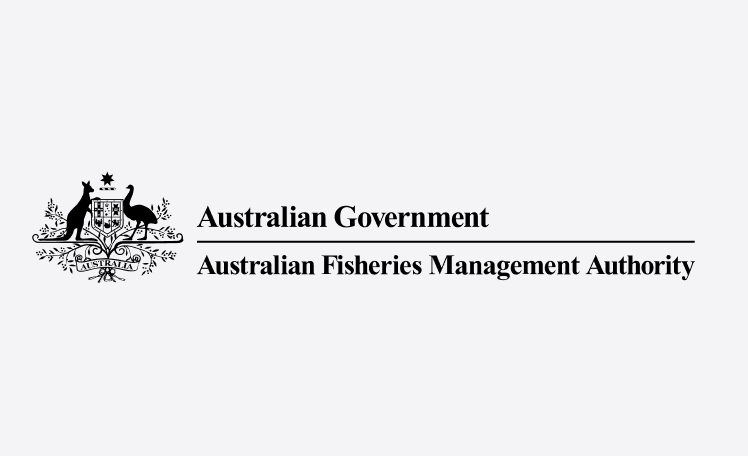Cooperating with other countries is vital to successfully combat illegal, unreported and unregulated (IUU) fishing and to sustainably manage shared fish stocks and non-target species that occur in the waters of multiple nations and on the high seas.
Management of highly migratory, shared and straddling stocks is guided by a range of multilateral and intergovernmental agreements. International treaties such as the 1982 United Nations Convention on the Law of the Sea (UNCLOS) and the 1995 United Nations Fish Stocks Agreement (UNFSA) underpin Australia’s international fisheries obligations and cooperation.
AFMA works closely with our counterparts at the Department of Agriculture, Fisheries and Forestry (DAFF) and the Australian Antarctic Division (AAD) on the sustainable management of shared fisheries resources and Australia’s engagement with international fisheries management organisations and international fisheries bodies. The Department of Foreign Affairs and Trade (DFAT) is also a key partner in supporting us to deliver international capacity development and combatting IUU fishing.
Multilateral fisheries management
Regional fisheries management organisations (RFMOs) have a range of mandates regarding the sustainable management of international fisheries, fish stocks and their related environmental impacts. This includes the:
- provision of scientific advice
- establishment of catch limits and harvest control processes
- establishment, and assessment of compliance with rules and obligations, and
- coordination of monitoring, control and surveillance (MCS) activities.
Our engagement with RFMOs ensures that stocks targeted by Australian fishers are managed sustainably. Australia is also a strong leader in advocating for science-based decision making and effective regulatory frameworks. Once rules and obligations are adopted, we have a legislative responsibility to ensure relevant Australian fisheries are managed accordingly. Our engagement assists in regional and international actions and responses, particularly in relation to highly migratory, shared and straddling stocks in areas adjacent to the Australian Fishing Zone.
Australia is party to three RFMOs that create binding obligations for countries which share in the harvest of highly migratory species:
- Western and Central Pacific Fisheries Commission (WCPFC)
- Commission for the Conservation of Southern Bluefin Tuna (CCSBT), and
- Indian Ocean Tuna Commission (IOTC).
Non-highly migratory species (straddling stocks) are covered by equivalent organisations and binding obligations. Australia is party to the:
- South Pacific Regional Fisheries Management Organisation (SPRFMO)
- Southern Indian Ocean Fisheries Agreement (SIOFA), and
- Commission for the Conservation of Antarctic Marine Living Resources (CCAMLR).

Other multilateral engagement
There are several other international and regional fisheries bodies, treaties and arrangements that form part of Australia’s fisheries management and regulations. These include the:
- Pacific Islands Forum Fisheries Agency (FFA)
- Niue Treaty on Cooperation in Fisheries Surveillance and Law Enforcement in the South Pacific Region, and subsequent Niue Treaty Subsidiary Agreement (NTSA)
- Regional Plan of Action to Promote Responsible Fishing Practices including Combating Illegal, Unreported and Unregulated Fishing in the Region (RPOA-IUU)
- 2009 Food and Agriculture Organisation (FAO) Port State Measures Agreement to Prevent, Deter and Eliminate Illegal, Unreported and Unregulated Fishing
- 1995 FAO Code of Conduct for Responsible Fisheries, and
- 1995 Agreement to Promote Compliance with International Conservation and Management Measures by Fishing Vessels on the High Seas.
We also support the strengthening and implementation of international treaties through information sharing and bilateral or multilateral collaboration with other flag, coastal, or port States. Regional collaboration is key in addressing IUU fishing threats and strengthening regional MCS frameworks.
Frameworks such as the Niue Treaty Subsidiary Agreement (NTSA), and cooperation between Pacific Islands Forum Fisheries Agency (FFA) members, support the exchange of fisheries data and information, as well as procedures for cooperation in compliance and enforcement activities concerning operators of IUU fishing vessels.
Bilateral engagement
Australia is also party to several bilateral treaties and arrangements that provide for cooperation in fisheries including the:
- Treaty Between Australia And The Independent State Of Papua New Guinea Concerning Sovereignty And Maritime Boundaries In The Area Between The Two Countries, Including The Area Known As Torres Strait, And Related Matters;
- Agreement between the Government of Australia and the Government of the Republic of Indonesia Relating to Cooperation in Fisheries (1992 Fisheries Cooperation Agreement);
- Treaty Between Australia And The Democratic Republic of Timor-Leste Establishing Their Maritime Boundaries In The Timor Sea;
- Treaty between the Government of Australia and the Government of the French Republic on cooperation in the maritime areas adjacent to the French Southern and Antarctic Territories (TAAF), Heard Island and the McDonald Islands;
- Agreement on Cooperative Enforcement of Fisheries Laws between the Government of Australia and the Government of the French Republic in the Maritime Areas Adjacent to the French Southern and Antarctic Territories, Heard Island and the McDonald Islands; and
- Arrangement Between The Government Of New Zealand And The Government Of Australia For The Conservation And Management Of Orange Roughy On The South Tasman Rise.
